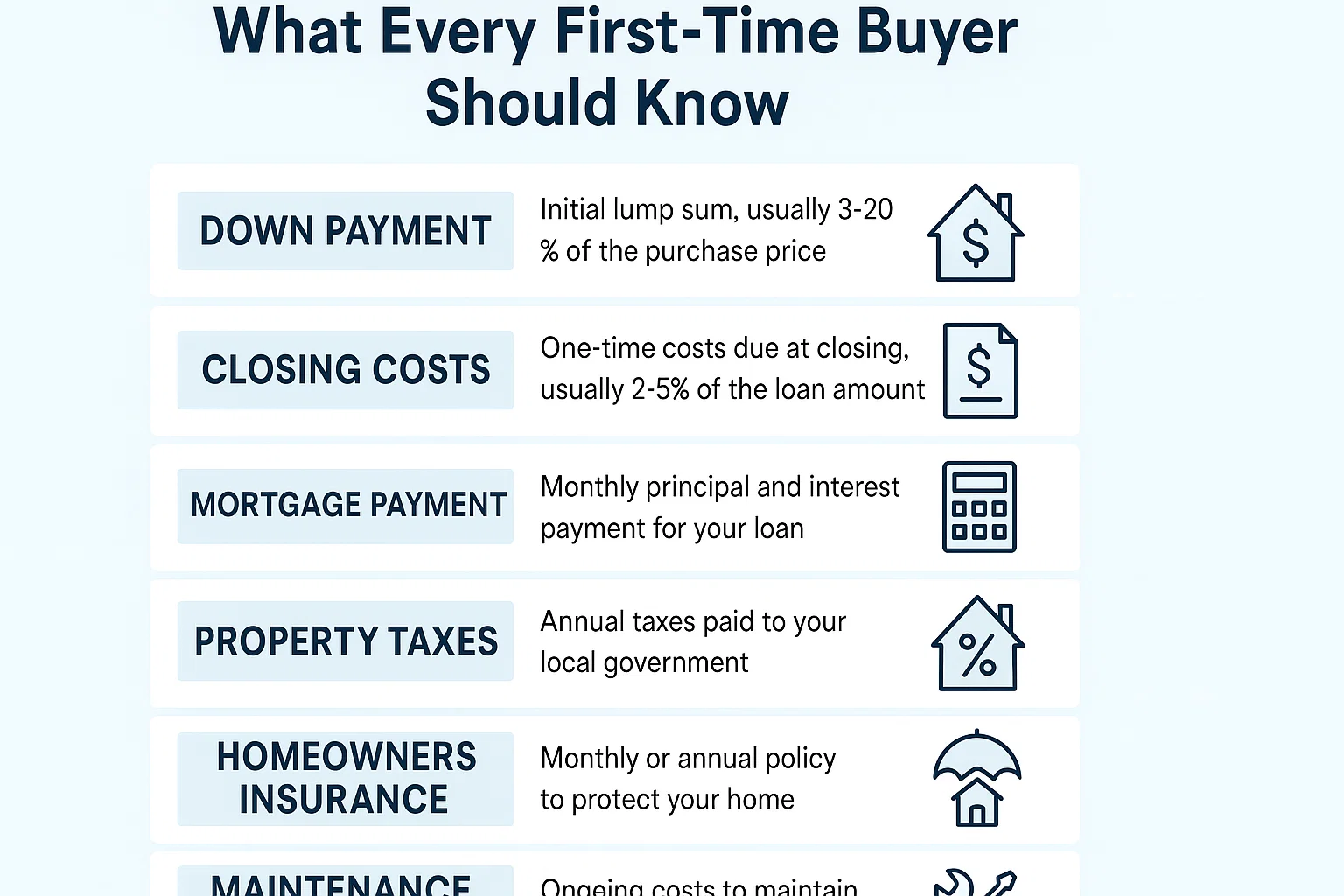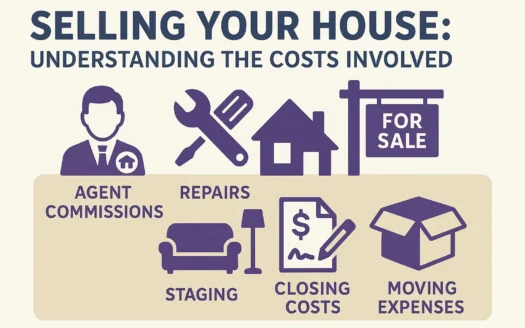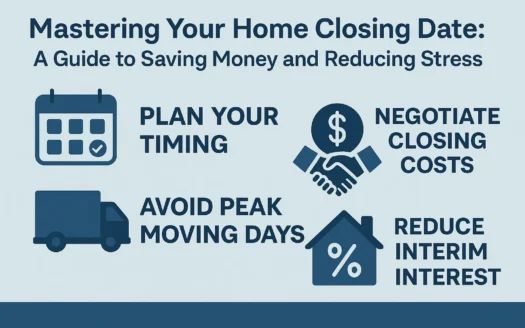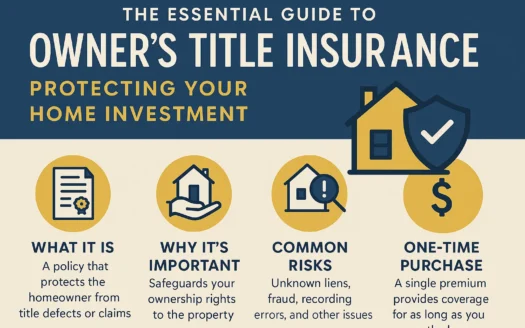The Complete Guide to Homeownership Costs: What Every First-Time Buyer Should Know

The Complete Guide to Homeownership Costs: What Every First-Time Buyer Should Know
Updated: May 4, 2025
Buying a home is both a rewarding personal milestone and a significant financial decision. To fully enjoy the benefits of homeownership, it’s essential to prepare for the responsibilities that come with maintaining a property. This guide breaks down common expenses into three categories: Time-of-Purchase Expenses, Monthly Homeownership Expenses, and Situational Expenses.
Time-of-Purchase Expenses
Understanding upfront costs is critical for budgeting your home purchase. Here’s what to expect:
Down Payment
- Typically the largest upfront expense, often 20% of the purchase price for conventional loans.
- Amounts vary by loan type (e.g., FHA, VA loans) and may be adjusted based on closing costs.
Closing Costs
- One-time fees charged by lenders, usually 2–5% of the home’s price.
- Includes appraisal fees, title insurance, prepaid taxes/insurance, and inspection costs.
- Some sellers may negotiate to cover part of these costs.
Moving Expenses
- Costs for packing supplies, truck rentals, or professional movers.
- Factor in fuel, meals, or temporary storage if needed.
Move-in Readiness
- Repairs, appliance replacements, or pest control before moving in.
- New construction homes may reduce these costs with modern features and warranties.
Monthly Homeownership Expenses
Prepare for recurring costs that keep your home functional and comfortable:
Mortgage Payments
- Determined by loan amount, interest rate, and term length.
- May include escrow payments for taxes and insurance.
Property Taxes
- Based on your home’s assessed value, often bundled into mortgage payments.
- Funds local services like schools and infrastructure.
Homeowners Insurance
- Premiums vary by location, coverage, and home value.
- Compare policies to balance cost and protection.
HOA Dues
- Covers amenities and community upkeep in managed neighborhoods.
- Ask about fees and rules before purchasing.
Utilities and Services
- Monthly bills for electricity, water, gas, trash, and internet.
- Older homes may have higher energy costs due to inefficiencies.
Landscaping
- DIY maintenance saves money but requires time and equipment.
- Professional services add convenience for a monthly fee.
Situational Expenses
Unexpected repairs and upgrades are inevitable. Budgeting helps minimize stress:
Roof Repairs or Replacement
- Weather damage or aging may require partial or full replacement.
- Check insurance coverage for storm-related issues.
Plumbing and Water Damage
- Address leaks quickly to prevent mold or structural issues.
- Insurance may cover some damage, depending on the cause.
Electrical Upgrades
- Older homes may need rewiring for safety and efficiency.
- Improves energy use and reduces fire risks.
Appliance Replacement
- Plan for eventual breakdowns of HVAC systems, water heaters, or kitchen appliances.
- Energy-efficient models lower long-term utility costs.
Flooring and Renovations
- Wear-and-tear or style updates may require new flooring.
- Kitchen and bathroom upgrades boost resale value.
Pest Control
- Termites, rodents, or insects need professional intervention.
- Preventative measures reduce future risks.
Final Tips for Homebuyers
New construction homes can minimize situational expenses with modern warranties and energy-efficient features. Prioritize a financial buffer for emergencies, and consult professionals to make informed decisions. With careful planning, you’ll enjoy the rewards of homeownership with confidence.



